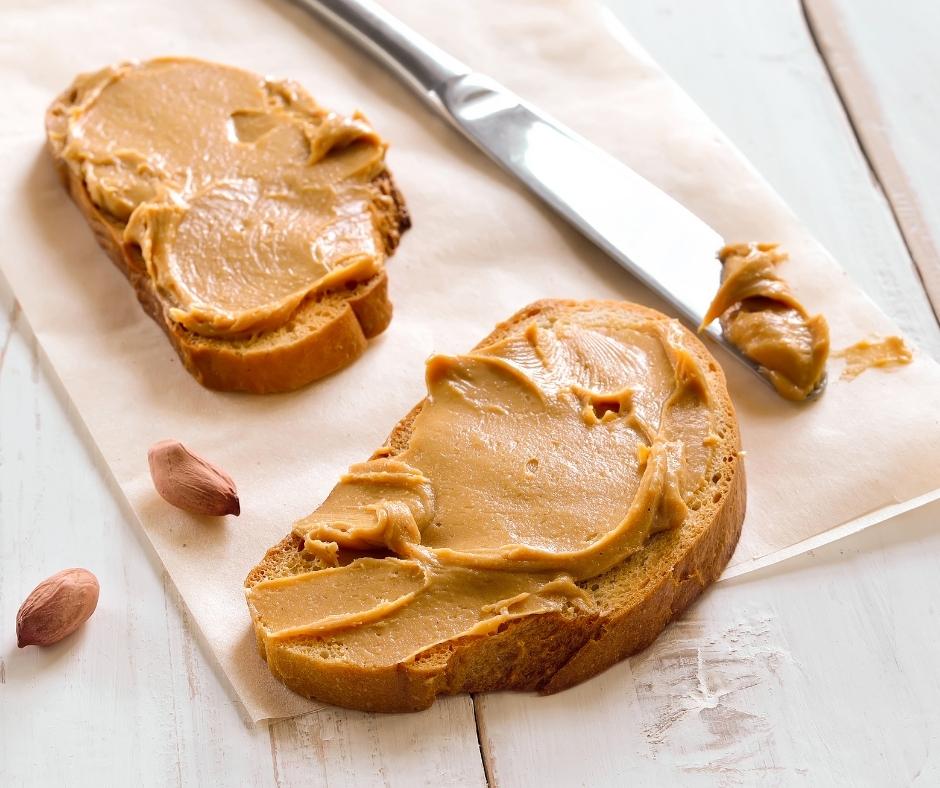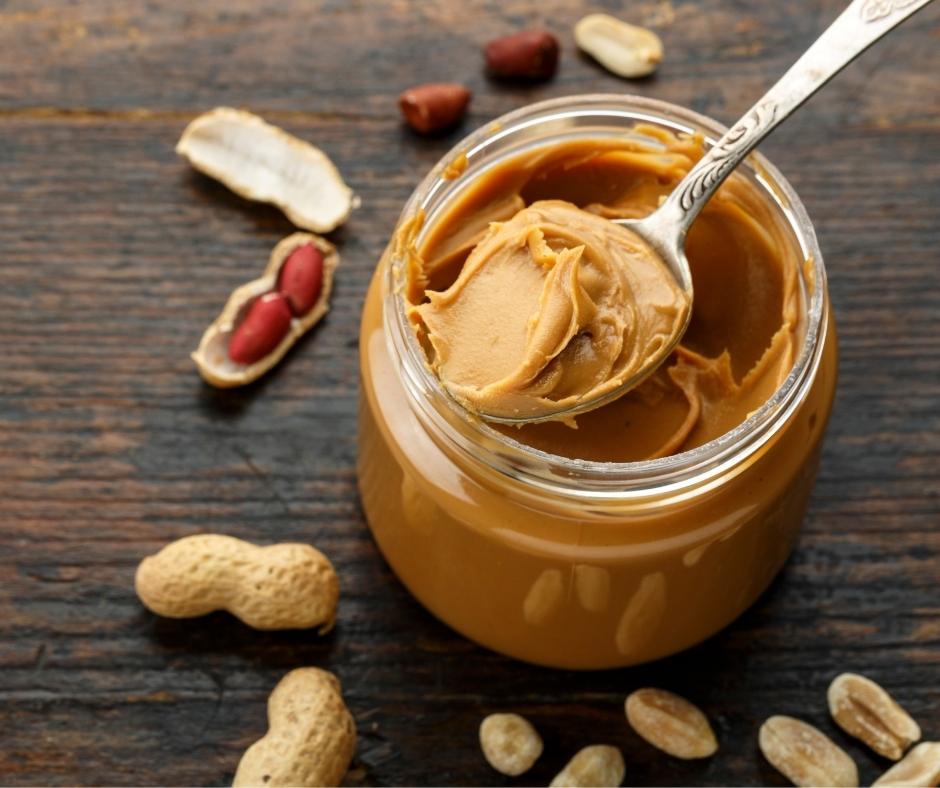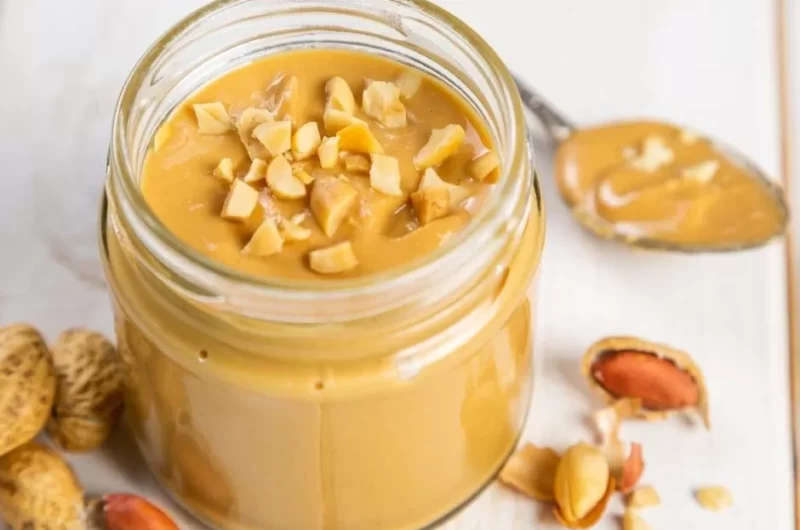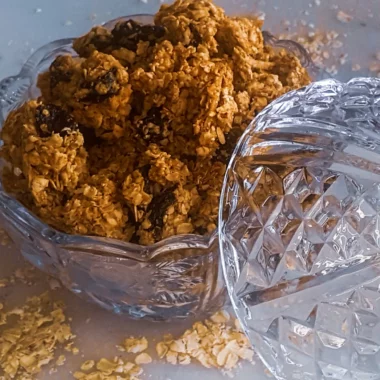Peanut butter is produced from roasted peanuts and ground into a paste. It is a staple nut butter is a staple food consumed by many adults and children around the world. Although no one can deny the deliciously addicting taste of peanut butter, many individuals have started to wonder whether peanut butter is good or bad for you.
History Of Peanuts
Peanuts, scientifically known as Arachis hypogaea L., are botanically groundnuts or legumes that are indigenous to South America. Additionally, peanuts have a nutrient content that of tree nuts.
Macrofossil and starch grain data show that peanuts arrived in the Zaña Valley of Northern Peru approximately 8500 years ago. These peanuts are suspected of having originated on the eastern portion of the Andes Mountains, but the hulls found in this location share no characteristics with modern domesticated peanuts. During the era of European expansion, peanuts were cultivated in tropical and subtropical regions of this hemisphere.
Early Spanish and Portuguese adventurers found Indians growing peanuts in many West Indian Islands, Mexico, Brazil’s northeast and east coasts, and the Rio de la Plata basin, including Argentina, Paraguay, Bolivia, and the far southwest portions of Brazil.
Nevertheless, peanuts were cultivated widely in Peru. From there, peanuts migrated to Europe, Africa, Asia, and the Pacific Islands. Peanuts eventually migrated to the U.S., but the time and place are unknown as there is no documentation.

The Health Benefits Of Peanut Butter
Nuts, including tree nuts and peanuts, are nutrient-rich foods containing complex matrices that are excellent sources of unsaturated fatty acids as well as bioactive compounds. These bioactive compounds include fiber, tocopherols, high-quality vegetable protein, minerals, phytosterols, and phenolic compounds.
Improves Diet Quality
One study evaluated the diet quality of free-living men, women, and children who consumed peanuts and peanut products. This study found individuals who consumed peanuts had higher intakes of protein, total fat, polyunsaturated fat, monounsaturated fat, fiber, vitamin A, and E, folate, calcium, magnesium, zinc, and iron.
In addition to this, the dietary cholesterol of individuals who consumed peanuts was decreased for all population groups. However, this finding was significant for both men and children.
Cognitive Function
Another cross-sectional research study evaluated the association between peanut and peanut butter consumption and cognitive function. This study featured 2,454 adults ranging from 60–80 years old who had no history of stroke. Scientists measured peanut, peanut butter, and tree nut consumption in addition to participant performance on the CERAD Word Learning subtest (CERAD W-L), Animal Fluency Test (AFT), and the Digit Symbol Substitution Test (DSST).
Participants were divided into peanut and peanut butter consumers or non-consumers and tree nut consumers or non-consumers. Participants who did not consume peanut and peanut butter were more likely to perform poorly on the CERAD W-L, AFT, and DSST when compared to individuals who consumed peanuts and peanut butter.
The results of this crossectional study insinuate an association between peanut butter and peanut consumption and cognitive function. Nevertheless, because this is a cross-sectional study, a causal relationship cannot be confirmed as more studies are needed to ascertain causality.
Which Peanut Butter Is Best?
Peanut butter is available in two forms: smooth and crunchy. Crunchy peanut butter has small bits of crushed peanuts while smooth peanut butter has a creamy texture.
The best peanut butter is one that contains one ingredient: peanuts. The only drawback of this type of peanut butter is it may separate. The more it sits, the peanut oil rises to the top of the jar.
However, you can incorporate the oil back into the peanut butter by stirring it or turning the jar upside down to return it to its sold state.
If you cannot find a peanut butter with one ingredient, look for one with the least ingredients. Natural peanut butter is generally only manufactured from peanuts.
However, there is also light or lower fat peanut butter available on the market. Some commercial peanut butters often includes oils, sugar, salt, and additives to prevent the peanut butter from separating.
Avoid consuming peanut butter with added sugars. You can always stir a little honey or maple syrup to add a touch of sweetness to your dish.

How To Incorporate Peanut Butter To Your Diet
Peanut butter can be a healthy addition to your diet when consumed in moderation. However, consuming too much peanut butter is very easy.
Consuming too much peanut butter may increase your daily caloric intake. Just two tablespoons of peanut butter contain approximately 188 calories.
You can incorporate peanut butter into your diet by making a traditional peanut butter and jelly sandwich using whole sugar-free strawberry jam or jelly or your preferred jelly. You can also use peanut butter in peanut butter cherry granola.
Thai-inspired dressings, and smoothies to increase their satiety. You can also stir a tablespoon of peanut butter into yogurt, protein bowls, oatmeal, or dip apple slices into it for a snack and spread it onto a rice cake.
In Summation
Even though there are many positive benefits associated with peanut butter, there are also a few negative side effects of consuming too much peanut butter. Peanut butter contains a diverse range of nutrients, and it’s an excellent source of vegetable protein.
It also contains vitamins, fiber, and minerals. Although peanut butter can be an incredibly challenging temptation to resist, moderation is key. Consuming moderate amounts of peanut butter is unlikely to have negative effects on your health.






